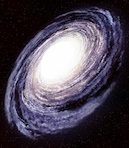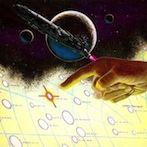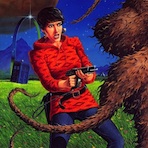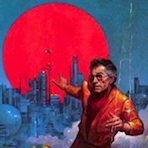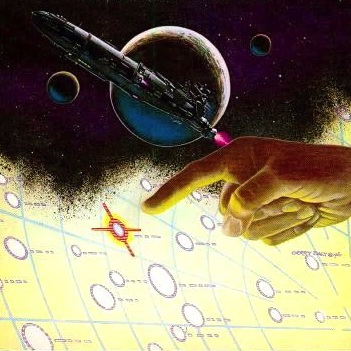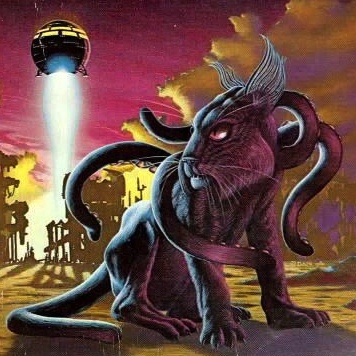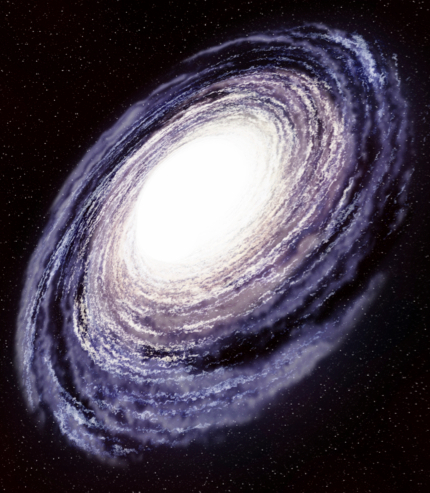see Isaac's review.
Guest reviewer:
Daniele Bitossi
June 1st, 2008
Only One Van
Before receiving this book, I had some fears about its scope. I was wrong: this novel is intended as a heartfelt and passionate homage to van Vogt’s work.
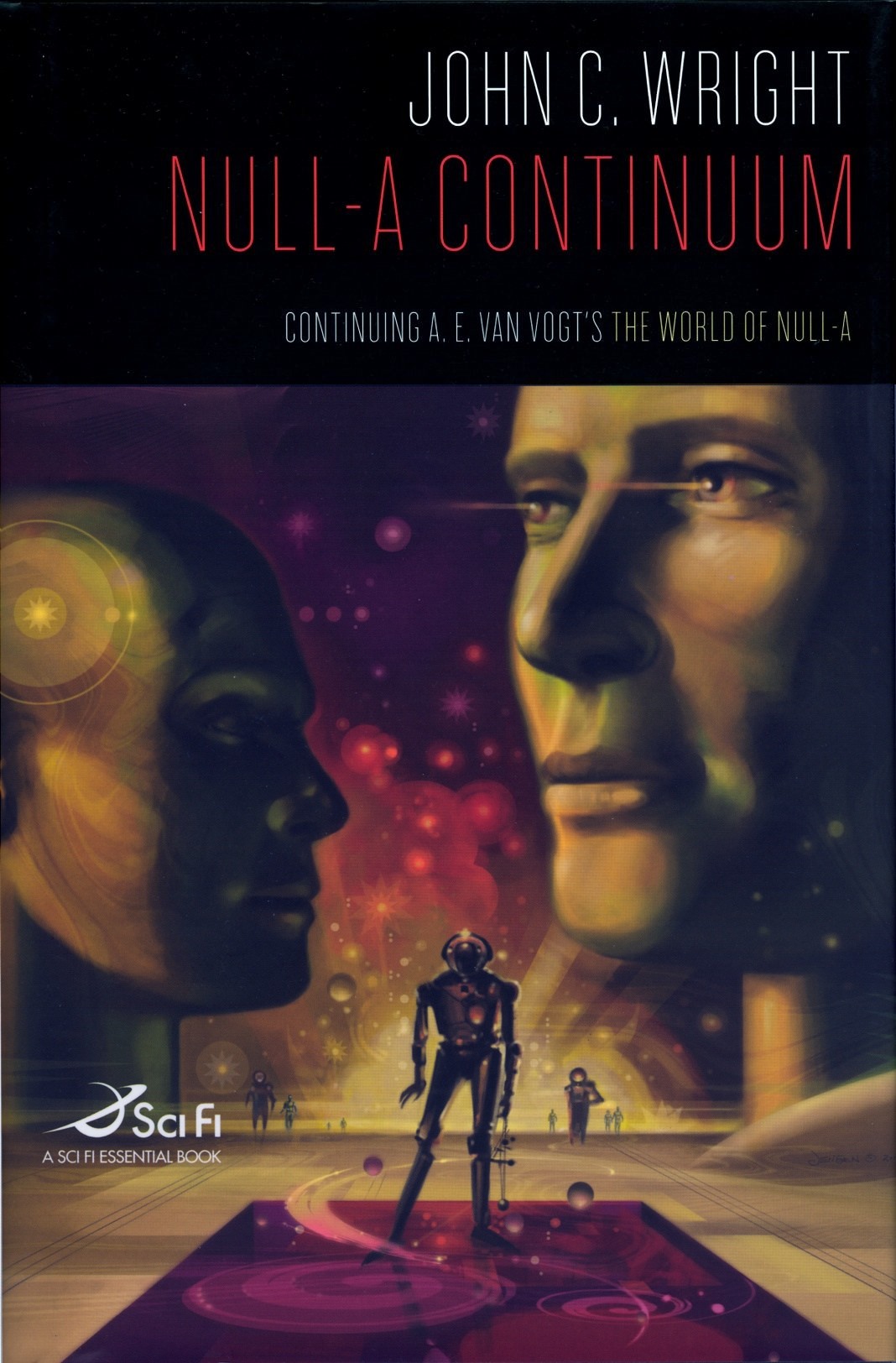
cover art © Bruce Jensen
In the first few chapters, the magic seems to work: the realities are shifting, Gosseyn's quest for identity is compelling and there is a continuous change of scenes. Besides, Wright has a gift for showing landscapes of vintage technology. In short, there is a fascinating dreamlike atmosphere.
On page 70, I began to think: this novel is too long. On page 80, I seemed to see the shadow of the late Damon Knight, who was laughing and repeating: "Kitchen sink technique, kitchen sink technique…"
With the avatar of X in the body of a seventeen year old Gosseyn, the necessary suspension of disbelief, vital to a novel, was shattered.
In my opinion, Wright has not resisted the worst possible temptation: "outvanvogting" van Vogt. If a big building is beautiful, someone can think of making another ten times bigger. Usually it crumbles: I was beginning to feel along these lines.
On page 100, I thought the author was using up his ideas and gasping to continue his narration in some manner.
Unnecessary bloodshed on a gigantic scale made me think more of Edmond Hamilton than of Van.
On page 110, I definitely lost interest. Ptath, the sevagram, No men, callidetics, nexialism, the seesaw, Shadow Men, S-Doradus, Violent Man: all are thrown together without rhyme or reason. The Hamiltonian atmosphere increased, with a little touch of Olaf Stapledon. The story became all cardboard and the characters mere puppets.
And still the novel goes on, verging on silliness.
Wright supports his narrative with what I would call "alternate cyberpunk," sustaining the story by means of a kind of technology (in this case, an improbable one). Moreover, the Ydd resembles too much the photino birds created by Stephen Baxter, and its demise is strangely reminiscent of "Enemy of the Silkies."
There are occasional nice touches: for instance, Patricia/Ptath Reesha, mysterious and ambiguous; a planet full… of Gladstone Ganders; the "equalized" amazons; "this is the primal secret of the universe." But the story remains very weak. The thoughtless proliferation of Gosseyns adds the distinct flavour of solipsism to the narrative.
The last sixty pages are better. Inxelendra, this powerful woman, is a capable creation and we find the classic quote "and then…oneness." You can look also at this epigram: "Man is the organism most unsuited for sanity."
Besides, Wrights resolves very well the problem posed by my favourite character, Eldred Crang, the only normal man in this bunch of self referential supermen and superwomen. I was displeased when I discovered the only adult figure in the novel was dead in the first chapter, and I think Wright has found a good way to restore alive this near silent and able helper.
The ending scene is very clever, surprising yet convincing and "adequate," but my general impression remains the same: the novel is awfully long and for the most part a great bore.
Null-A Three is a flawed and contradictory book, but it is also the conclusion to the series devised by van Vogt. This novel, which revisits the scene forty years after his creative peak, has two strong characteristics: it is smiling and ironic. Smiling, because it ends with a lot of marriages and no deaths: perhaps even Enro can be redeemed. Ironic, because Van notes the weak points of his old vision and deliberately jests about them. The fiancee of Dan Lyttle, the intriguing Strella, comes from an interstellar Lonely Hearts Club and possessively grabs the Non-A minion; the shops of Earth are full of Non-A gadgets. This is first class self-irony. Feeble and confused, Null-A Three is however a lovable book. There was only one van Vogt and, sadly, he has passed away.
In conclusion, I can recommend Null-A Continuum to the nostalgic fans and to the collectors of everything vanvogtian, but to no others.
